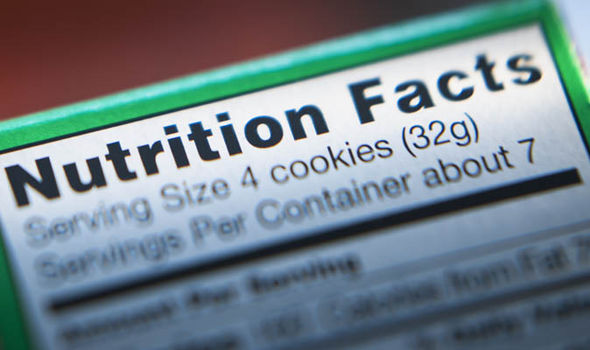RESEARCHERS claim to have found a single, foolproof way to stop children consuming dangerous levels of sugar – by putting cigarette packet-style warnings on labels.
Researchers have found health warnings, such as highlighting that too much sugar increases the risk of diabetes, has powerful effect on whether parents purchase sugar-sweetened beverages for their children.
They claim 75 per cent of people would support sugar-sweetened beverage warning labels on containers.
Researchers at Penn Medicine said regardless of a parent’s level of education, nutrition labels indicating the dangers of high sugar content made the parent significantly less likely to buy the sugary product.
 |
| 60 per cent of parents in the groups exposed to health warning labels avoided buying the sugary drink |
Specifically, labels that warned of obesity, diabetes and tooth decay were the ones most likely to encourage parents to put the beverage back on the shelf - but the researchers found simply the presence of a label was enough of a deterrence.
Haleh Moravej , Senior Lecturer of Nutritional Sciences at Manchester Metropolitan University, explains that whilst scare tactics are one strategy to tackle the issue of childhood obesity, it only offers us one piece of a complicated puzzle.
She said: “Obesity is a combination of several factors such as lifestyle, psychological, diet and activity that are contributing to the children’s growing waistlines. We need to create healthy environments and healthy food choices for adults and children.
“Maybe we could think of creative tactics rather than scare tactics. We could be marking the sugar calories and how long it takes to burn them in a creative clear visible place and in that way change can be more meaningful and long lasting as well as educational.”
In the study, 60 per cent of parents in the groups exposed to health warning labels avoided buying the sugary drinks, compared to 40 per cent of the parents who looked at drinks without any nutrition labels.
With obesity levels on the rise and the rising evidence about the danger of sugar, the study’s lead author Dr Christina Roberto an assistant professor of medical ethics and health policy at Penn Medicine mentioned this research has come at a very important time.
She said: “In light of the childhood obesity epidemic and studies suggesting that more than half of children under the age of 11 drink sugar-sweetened beverages on a daily basis, there is a growing concern about the health effects associated with consumption of these beverages.
"Regardless of the specific wording, results show that adding health warning labels to SSBs may be an important and impactful way to educate parents about the potential health risks associated with regular consumption of these beverages, and encourage them to make fewer of these purchases.
"The findings are in line with similar studies conducted on the effects of warning labels on tobacco products, which have been shown to increase consumer knowledge of health risks related to tobacco use, and encourage smoking cessation.
"We can now say that warning labels have the potential to educate parents and motivate behaviour change when it comes to purchasing SSBs, which could help gain support for bills requiring labels to be added to beverage containers.”
Just this week a study announced fizzy drinks may dangerously increase the amount of visceral fat around vital organs.
It also coincides with the pressure mounting on the UK government to impose a sugar tax in the midst of an obesity crisis.




Post a Comment Blogger Facebook Disqus